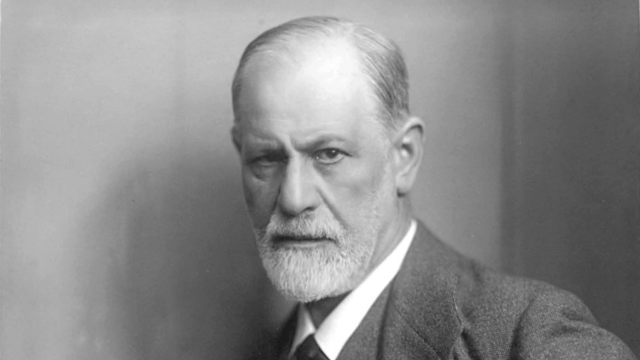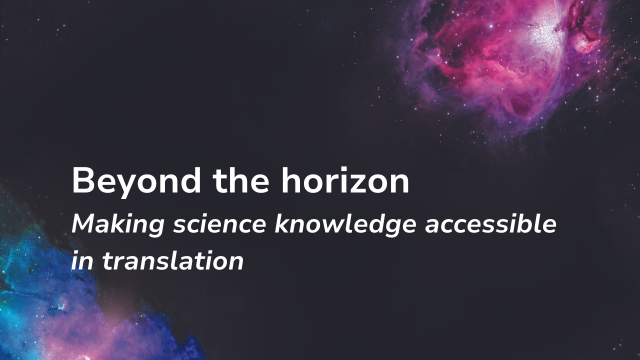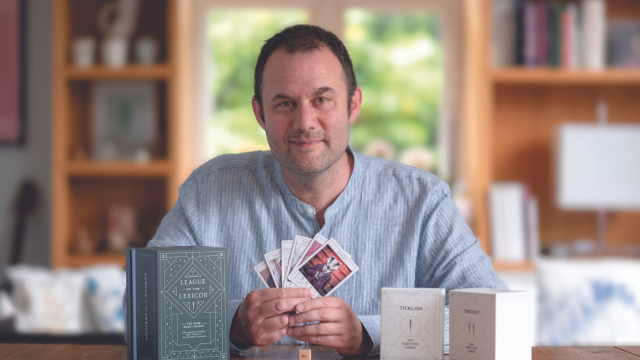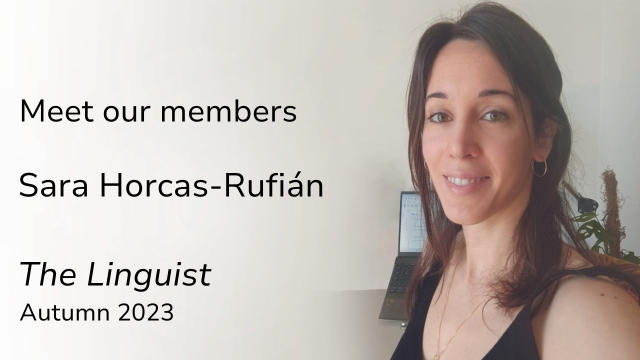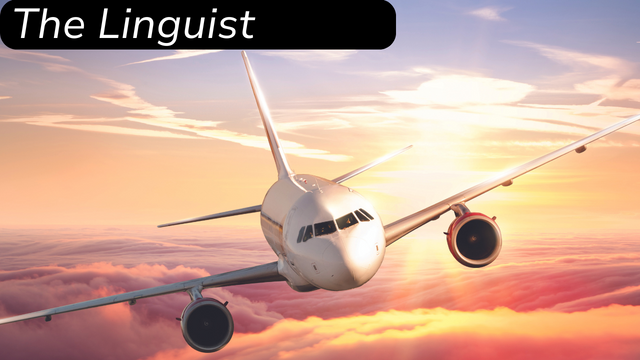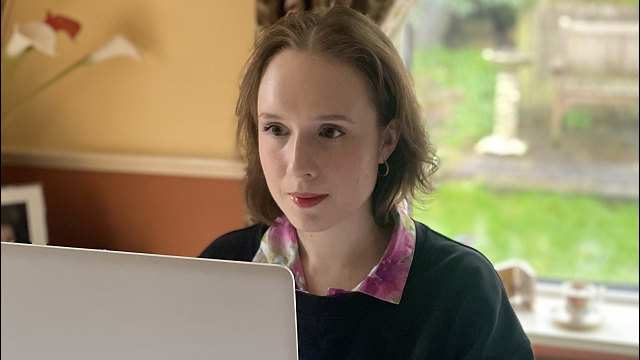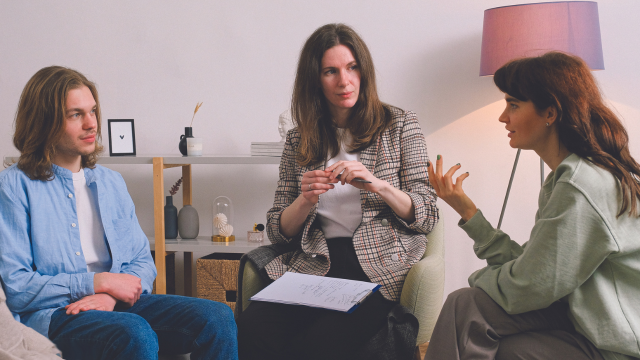-
QUALIFICATIONS
- For Linguists Worldwide
- For UK Public Services
- Preparation
- Policies & Regulation
-
MEMBERSHIP
- Join CIOL
- Membership grades
- NEW for Language Lovers
- Chartered Linguist
- Already a member?
- Professional conduct
- Business & Corporate Partners
-
ASSESSMENTS
- For Second Language Speakers
- English as a Second Language
-
TRAINING & EVENTS
- CPD, Webinars & Training
- Events & Networks
- CIOL Mentoring
-
NEWS & VOICES
- News & Voices
- CIOL eNews
- CIOL Awards
- The Linguist
- Jobs & Ads
-
RESOURCES
- For Translators & Interpreters
- For Universities & Students
- Standards & Norms
- CIOL & AI
- APPG
- In the UK
- UK Public Services
- Find-a-Linguist
Adventures in Russian
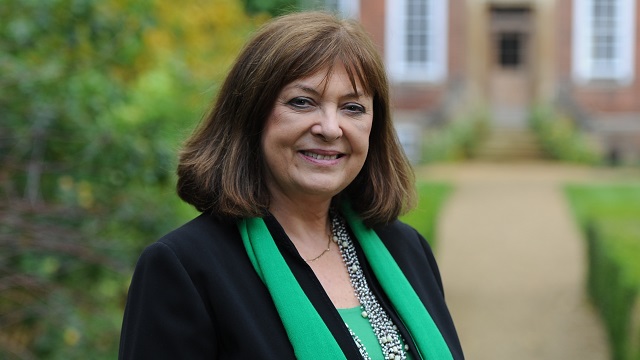 Bridget Kendall tells CIOL CEO John Worne why her career as a BBC reporter would not have been possible without Russian
Bridget Kendall tells CIOL CEO John Worne why her career as a BBC reporter would not have been possible without Russian
Bridget Kendall is perhaps best known as BBC Diplomatic Correspondent, working for both its radio and television networks. She joined the broadcaster in 1983 as a radio production trainee for the BBC World Service and in 1989 became its Moscow Correspondent. Fluent in Russian, she reported on the break-up of the Soviet Union, sent reports of the 1991 coup and covered Boris Yeltsin’s rise to power.
For this work she was given the James Cameron Award for journalism in 1992, becoming the first woman to receive it. In 1994, she was awarded an MBE in the New Year’s Honours list, and moved to the USA as the BBC’s Washington Correspondent. She has interviewed many world leaders, including Vladimir Putin. Since July 2016, she has been Master of Peterhouse, Cambridge – the first woman to head the college. Her weekly flagship discussion show The Forum airs on the BBC World Service and Radio 4.
So Bridget, how did you feel when you heard you’d won the David Crystal Trophy?
Very surprised, honoured, humbled, and pleased on two accounts. Firstly for an award that recognised my interest in languages, which has never happened to me before. It’s something I do feel passionate about. I suppose I thought, in a quiet way, I was a campaigner – going to schools and encouraging school children to learn hard languages to have an exciting career like my one. I have always used opportunities in talks and lectures to underline how learning foreign languages opened doors for me in my career. But I didn’t think many people had noticed.
It was also extremely pleasing that this is the David Crystal Trophy. When I was a school girl realising not just that I liked languages but that I was very interested in language per se, it was his books that opened up to me how fascinating linguistics were. So I was utterly delighted to win an award named after him.
You’ve taken part in many moments of world history during your career. Where were your languages most useful?
Oh definitely when I was Moscow Correspondent for the BBC, with the collapse of the Soviet Union, the end of Communism and the emergence of a new Russia. The fact that I knew Russian meant that I had broader access to what was going on, but also deeper access. That was partly because I’d spent two years there as a student, so I absolutely understood the undercurrents of Soviet life; I knew where people were coming from.
It wasn’t just that I could go to a collective farm and talk to the women who were milking the cows, but also that I understood what their lives were like. So I could appreciate the frustration they had with the Soviet Union, but also, to some extent, their lack of knowledge of the outside world, and maybe their unrealistic expectations.
Every day I’d go to the Soviet Parliament (the Supreme Soviet), which in 1989 was no longer a rubber stamp but an active political institution. Gorbachev – the architect of perestroika; the first and last Soviet President – was presiding. That was where everything was happening, where they were deciding the future of the country. And I just used to sit there listening and taking notes. There was no translation available, so the only foreign journalists who could do that were the ones who spoke Russian. And we had a fantastic insight into the politics as it was happening.
Out on the streets, the lid had lifted and everyone wanted to talk about politics, but often they were suspicious of foreigners. I was once in a crowd with a US correspondent who didn’t speak Russian and these elderly women were whispering to each other in Russian: “Do you think they’re foreign spies?” So I turned to them and said: “No, no, no we’re not spies, we’re journalists, we’re just interested to hear what you have to say.” It could have been a nasty moment but they were very pleased and wanted to tell us what they thought. So there’s languages keeping you safe and providing insights into what people are doing.
Is there a time where your languages got you out of a tricky situation?
Yes, quite a lot. In September 1991, I went to Chechnya because they’d decided that if the Baltic States had declared independence from Moscow then why couldn’t they? Someone gave me the name of a Chechen journalist, who agreed to help me look around.
I arrived at the airport and the Intourist and Aeroflot officials were grabbing their bags. They said: “We’re all leaving, all the Russians are getting out. It’s too dangerous here.” They advised me to tell the “ruffians” in charge of the airport that I was from the BBC. So I sat in a room wondering what would happen next, and eventually this young man in a leather jacket with a Kalashnikov over his shoulder and some grenades fastened to his belt came in and said: “Are you the BBC? Well I’m your bodyguard for the week.”
I had the most amazing week; they did look after me. The president summoned me so he could be interviewed. We had to have the postmistress up at midnight connecting my hotel room to Moscow, who plugged me through to London so I could file my report. And you know none of this would have been possible without speaking Russian. You just couldn’t have had that adventure really.
You’ve also worked with interpreters – what do you value most in an interpreter?
A good interpreter or translator is someone who has empathy and can understand the person both who they are translating from and who they are translating for, so they can be that bridge which is emotional as well as rational. It’s not just about literally translating the words; it’s about understanding nuances which might need to be explained or conveyed in another way. We’d be going through battle zones or interviewing politicians together, so it was really important that they could ‘fill me in’ on who everyone was – the culture, the history. These were fantastic people. Many journalists would tell you that the quality of their reports often relies on the quality of the translator who’s helping them.
Looking back, when did you first know you wanted to study or work with languages?
I think in my early teens. In my day, you studied French at primary school. I liked French but I wasn’t very good at it. Then at the age of 12, I started Latin, which I liked a lot, and a year or so later I began Russian. They’re both quite ‘analytical’ languages and Russian had the added attraction that it was a different alphabet, which was very exotic. With French I was always behind the girls who’d been to France on holidays; with Latin and Russian it was just a matter of how hard I worked. And we all know, if you work hard at a language, you get a long way!
So I completely fell in love with Russian and became fascinated by the ways in which, even though it’s an Indo-European language, it doesn’t operate the way English does. It treats verbs very differently for example, dividing them into verbs of motion or lack of motion, of action or inaction. I became fascinated with the idea of how far the language you speak shapes your thoughts, and that’s when I started reaching for books by people like David Crystal. The interest in linguistics came through learning a very different language, which opened my eyes to the realisation that not everybody thinks in the same way.
What advice would you give a young person considering a career in languages?
Try to get a good grounding early on. You never know where it might lead. I never had any idea I’d end up interviewing the President of Russia. Reading a lot in a language is a very good way to expand your vocabulary. You can do that even if it’s hard to travel. And now you can go online and there’s lots to immerse yourself in. Then if you have the opportunity to go somewhere, go! Immerse yourself in that place, this can open so many doors for you!
More
The Chartered Institute of Linguists (CIOL), Incorporated by Royal Charter, Registered in England and Wales Number RC 000808 and the IoL Educational Trust (IoLET), trading as CIOL Qualifications, Company limited by Guarantee, Registered in England and Wales Number 04297497 and Registered Charity Number 1090263.

